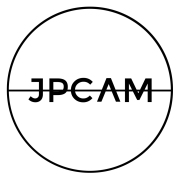▶ DIGC202 GLOBAL NETWORKS
Traditional Media and Social Media… what do these two have in common? Well, for starters they both have the word media in them! Jokes aside, these two are the main mediums of how information and media gets across the world.

To give you a small rundown: traditional media is the use of newspapers, radios and television which typically allow mass broadcasting through filters or as others may call it gatekeeping (Bruns, 2009). Gatekeeping is a way for journalists and news reporters to filter out specific information before broadcasting it live, kind of like wearing rose-coloured glasses — you only see everything as the same colour — but in this case, you’re only seeing news/information that has been edited/filtered rather than the raw version of it.

That’s why whenever you read any ‘news’ on social media, it sounds like a completely different story — this is because the information on social media is abundant, there is a large audience which calls for a large amount of content (Bruhn, Schoenmueller, & Schäfer, 2012). But then again, you still wonder which form of media has the more valid facts and content; is it verified news aggregators that produce and broadcast content on radios and television? Or is it just the small icons on your smartphone that are just at fingertips reach with their so-called ‘posts’ and ‘tweets’.
References:
- Bruhn, M., Schoenmueller, V., & Schäfer, D. B. (2012). Are social media replacing traditional media in terms of brand equity creation? Management Research Review, 35(9), 770–790. doi: 10.1108/01409171211255948
- Bruns, A. (2009). News Blogs and Citizen Journalism: New Directions for e-Journalism. In e-Journalism : New Media and News. Retrieved from http://produsage.org/files/News Blogs and Citizen Journalism.pdf
- Welbers, K., & Opgenhaffen, M. (2018). Social media gatekeeping: An analysis of the gatekeeping influence of newspapers’ public Facebook pages. New Media & Society, 20(12), 4728–4747. doi: 10.1177/1461444818784302

I agree with you when you said “But then again, you still wonder which form of media has the more valid facts and content; is it verified news aggregators that produce and broadcast content on radios and television? Or is it just the small icons on your smartphone that are just at fingertips reach with their so-called ‘posts’ and ‘tweets’.”
As in today’s media anyone can be a reporter and report online what’s happening around us. The problem with this it’s not verified and filter and may lead to fake news since there is no gatekeeper and could spread a fake news or rumour further creating moral panic and harming the journalist and it’s media industry.
LikeLike
Personally I love getting my news from apps such as Twitter and Instagram! I feel like its more concise and “to the point” unlike news articles where you need to read a bunch of pointless information before getting to the juicy parts!
LikeLike
Totally agree with wondering which is more reliable and accurate… I think that we can excuse citizen journalists for uploading whatever they want, but we should hold traditional journalism to a higher standard… We should at least hope for something unbiased, even if it never happens, right?
LikeLike